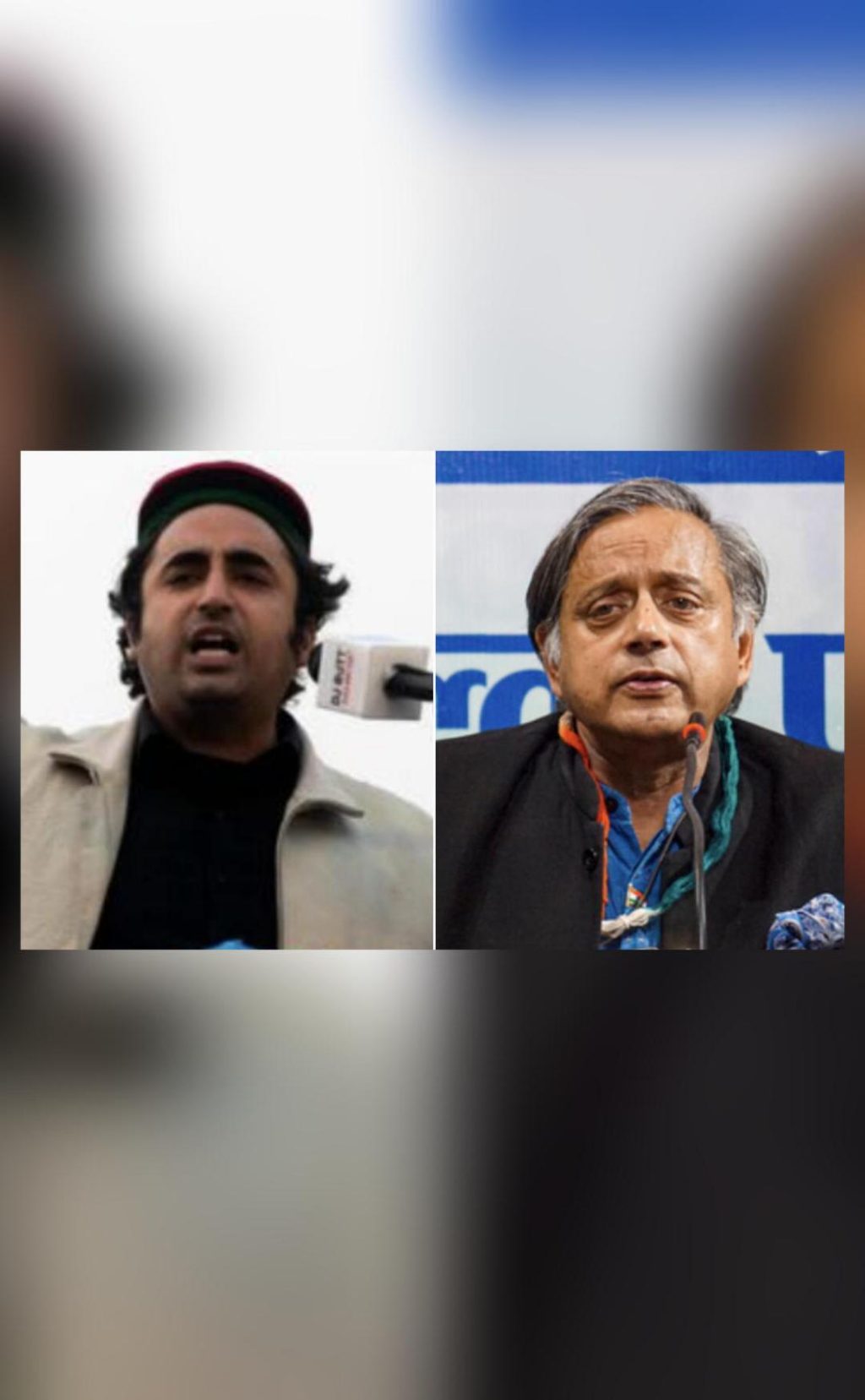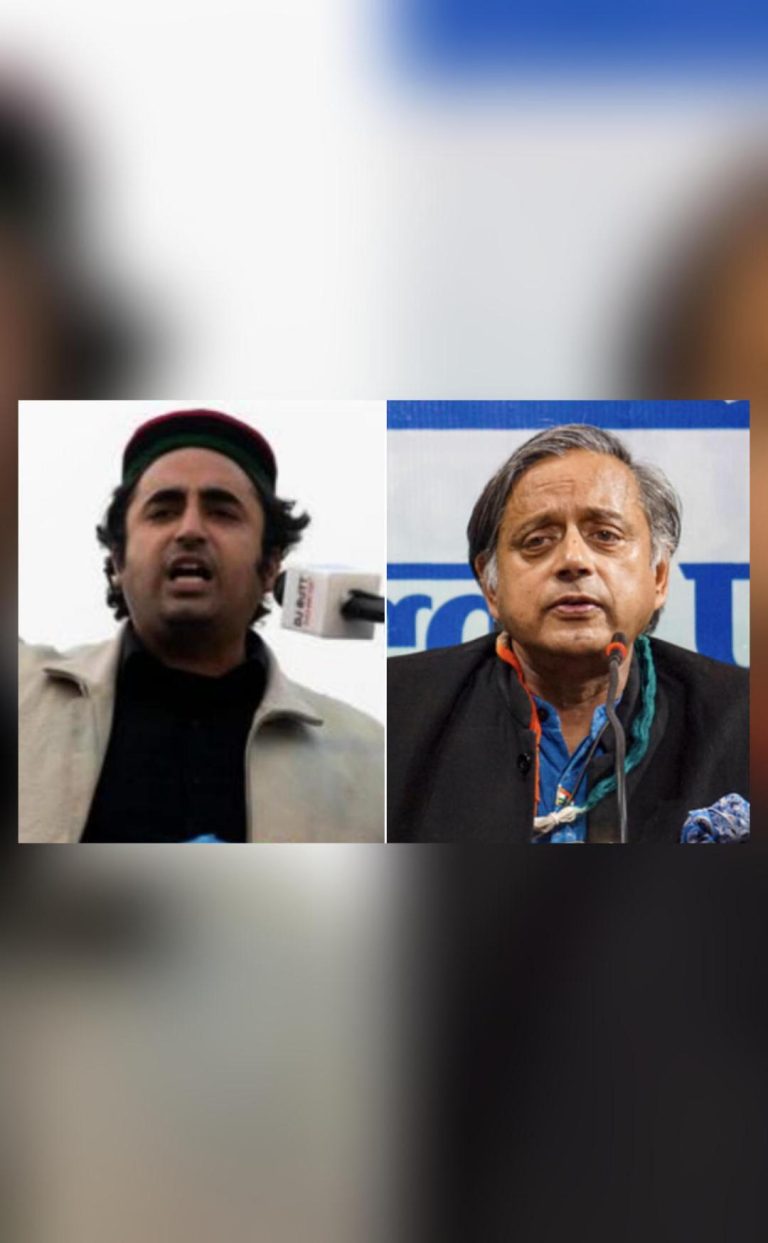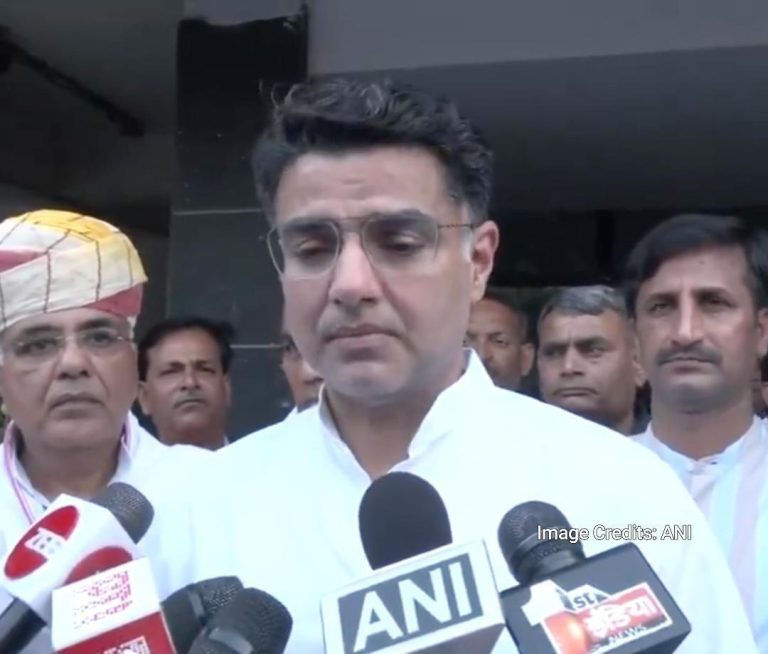
Just Inflammatory Rhetoric: Tharoor on Bilawal Bhutto’s Remark
The ongoing tensions between India and Pakistan have escalated further with the recent provocative remark made by Pakistani politician Bilawal Bhutto. In response to India’s decision to suspend the Indus Waters Treaty over the Pahalgam attack, Bhutto made a statement that has been met with strong criticism from various quarters, including Congress MP Shashi Tharoor.
Tharoor, a well-known diplomat and politician, has condemned Bhutto’s remark, calling it “just inflammatory rhetoric.” In a statement, Tharoor emphasized that Pakistanis need to understand that they cannot kill Indians with impunity. He added that if blood is going to flow, it will flow possibly more on their side.
Bhutto’s remark has sparked widespread outrage in India, with many calling it an unacceptable attempt to justify the brutal attack on Indian forces in Pahalgam. The attack, which took place on October 8, resulted in the deaths of several Indian security personnel and civilians. In response, India suspended the Indus Waters Treaty, a 1960 agreement that governs the sharing of the Indus River and its tributaries between the two countries.
Tharoor’s reaction to Bhutto’s remark is a clear indication of the deepening divide between India and Pakistan. The two countries have a long history of tension and conflict, and recent events have only added to the growing animosity between them.
Bhutto’s statement is not only unacceptable but also reflects a deep-seated problem in Pakistan’s approach to dealing with India. For years, Pakistan has been plagued by extremist groups and terrorist organizations that have been responsible for countless attacks on Indian soil. Instead of taking concrete steps to address this issue, Pakistan’s leaders have often resorted to inflammatory rhetoric and blame-shifting.
Tharoor’s warning to Pakistan is clear: if they continue to engage in such rhetoric, they will only invite further reprisals and escalation. India has shown remarkable restraint in the face of Pakistan’s aggression, but this can only continue for so long.
The suspension of the Indus Waters Treaty is a clear indication of India’s frustration with Pakistan’s inaction. The treaty was meant to be a symbol of cooperation and friendship between the two countries, but Pakistan’s refusal to take concrete steps to address its own issues has made it a hollow agreement.
Tharoor’s statement is also a reminder that words have consequences. Bhutto’s remark has not only inflamed tensions between the two countries but has also emboldened extremist groups in Pakistan. The Pakistani government’s failure to take action against these groups has created a culture of impunity, where they feel emboldened to carry out attacks on Indian soil.
In conclusion, Tharoor’s reaction to Bhutto’s remark is a necessary reminder that words have consequences. Pakistan’s leaders need to understand that they cannot kill Indians with impunity and that their actions have real-world implications. India has shown remarkable restraint in the face of Pakistan’s aggression, but this can only continue for so long.
It is time for Pakistan to take concrete steps to address its own issues and to work towards a more peaceful and stable region. The suspension of the Indus Waters Treaty is a warning shot across the bow, and Pakistan needs to take it seriously. Otherwise, we risk descending into a cycle of violence and retaliation that will have far-reaching consequences for the entire region.



